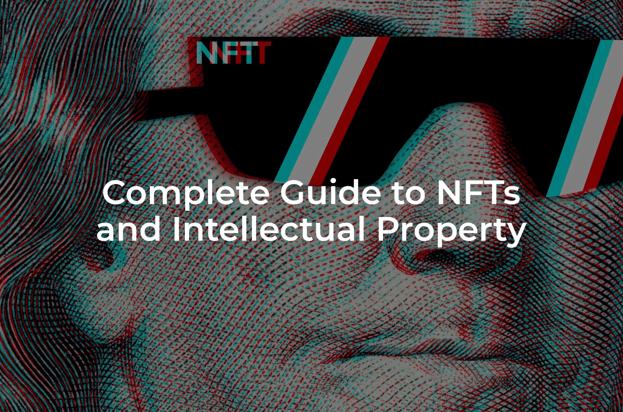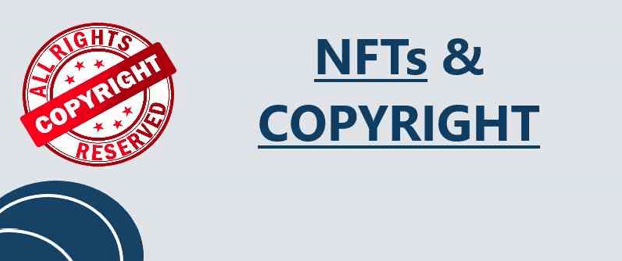
Intellectual property can be a difficult field to understand, but mastering it correctly can mark the difference between getting involved in vicious court battles to protecting your legal rights to enjoying the fruits of your artwork.
Copyrights and trademarks are two commonly mistaken intellectual property rights. If you are in the business of creating unique items, you should get the correct meaning of copyright trademark. The purpose of copyrights and trademarks is to protect distinct creations. Copyrights protect intellectual or creative works while trademarks protect commercial names, logos, and phrases.
Copyrights protect the rights of individuals who create dramatic, literary, artistic, musical, and other types of intellectual works (such as software code). Trademarks are meant to protect a company’s name and its product names, slogans, and brand identity.
Can an NFT be copyrighted?

With the ongoing NFT hype, many are left asking themselves:
Can an NFT be copyrighted?
NFTs (Non-Fungible Tokens) were discovered in 2014 but only became popular in 2021. Most artists are beginning to sell their work in the form of NFTs. The reason is that many think that NFTs will serve as copyright alternatives.
The fact is that there is so much confusion about NFT copyright ownership. So, let’s get the correct meaning of the NFT copyright trademark.
The fact is, NFTs are simply tokens that represent an asset, but they are different from the asset itself. Each NFT represents a unique asset, meaning that an NFT cannot be duplicated while retaining the same value as the original. Although many equate this type of ownership to the ownership of the asset itself, there is a need to emphasize the distinction. It will then become easy for people to understand the copyright trademark NFT meaning.
NFT copyright ownership belongs to the original work represented by the NFT. When a piece of art is sold on an NFT marketplace, the copyright trademark works in the same way it functions in a physical scenario, as the NFT copyright ownership remains with the artist. The NFT buyer only owns a unique hash stored on the blockchain with a hyperlink that leads to the piece of art. With this information, it becomes easy for beginners to get the correct copyright trademark NFT meaning.
It is worth noting that NFTs are a new technology. This means that there is no strong legal framework for NFTs at the moment. You can create an NFT from a meme, tweet, photo, video, etc. without being its original creator or owner. Due to this, some artists have reported their artwork stolen and sold in the form of NFT without their consent. In the traditional art marketplace, this amounts to a copyright violation. It can also lead to NFT trademark infringement.
The NFT world is yet to fully comply with copyright law. That is why you must take the necessary steps to protect your work from NFT copyright ownership issues.
Can you use Trademark in NFT?

Of late, many people have asked me:
Can you use trademark in NFT?
Yes. Getting a trademark registration for your NFT can be a good way of protecting it in the NFT space. It will allow you to continue building your brand and avoid other NFT creators from using a name that is similar to or close to yours.
A trademark is simply a badge of origin that differentiates the origin of goods and services from one business to another. Names and logos are the common types of trademarks used for NFTs. With trademarks, competitors are prevented from using a similar name or symbol, which in turn protects consumers from getting confused.
The process of registering a trademark for NFTs is similar to what it is with other types of products. However, there are unique considerations when it comes to NFT copyright trademark registration.
To avoid NFT trademark infringement, you can trademark the name and the logo of the NFT. The purpose of trademarks is to protect brands such as NFT brands.
But, can you use brands in NFTs?
Yes, brands can be used in NFTs. The best way to brand your NFT is by trademarking it. When you trademark the name of your NFT, it will act as a legal confirmation that you own it. You are the only one who can use that name for NFTs and other crypto properties. This will enhance the trust of customers as far as the authenticity of the asset represented by the NFT is concerned. Only the owner of a trademark can use a brand, and this includes the NFT brands.
As the number of NFT brands continues to rise, the NFT copyright trademark is becoming a hot topic. A high number of individuals and businesses have applied for the NFT copyright trademark. The U.S. Patent and Trademark Office received over 1,400 applications for NFT trademarks in 2021. This is a significant increase considering that there were only 20 applications in 2020. This means that NFT owners are using copyright trademarks to protect their NFT names.
